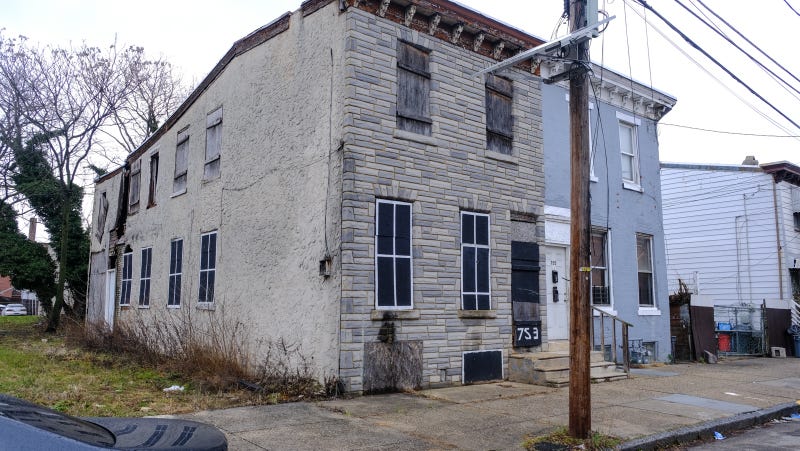
CAMDEN, N.J. (KYW Newsradio) — Tierra pokes her head out from behind the front door of her row home on Walnut Street in the Bergen Square neighborhood. It’s a dreary morning in early January and a drizzle is falling. She is wearing flannel pants and a jacket to keep warm and stay dry.
Before Tierra gets ready to run some errands, she stops to chat. She’s got a smile on her face and it’s clear there’s something she wants to say.
🎧 Hear more about Martin Luther King Jr.'s Camden days
“I actually have a joke that I tell everybody that comes here,” she said. “I'm like, ‘Yeah, because I live next to a celebrity ... technically, I live in a condo.”
It’s a cute joke, but it’s also tragic.
Because all you need is one look down her block to see the truth: No one famous lives there — at least not now. There are no fancy condos, just a bunch of rundown houses, vacant lots and litter. It feels like a forgotten place — an empty place.
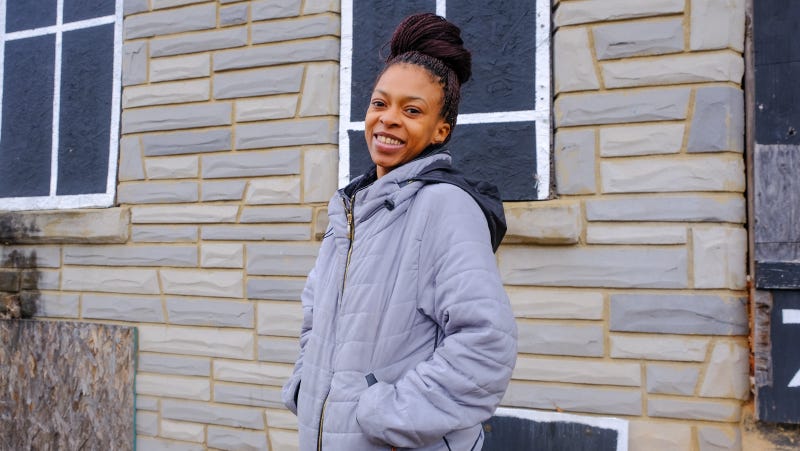
But the “celebrity” Tierra jokes about — the one who she says lived next door to her house — is none other than Martin Luther King Jr.
It seems almost impossible now, given the current state of the house at 753 Walnut Street.
“That's been abandoned since I was a kid,” Tierra says.
“I'm 31. A lot of these houses probably can't be rehabilitated because they've waited so long. I'm sure the wood inside is mush. So, I don't know. I hope that they can restore it. But, like I say, a lot of these rotting homes — their only fate is to come down.”
Darryl, 40, lives across the street and says the majority of people on the block didn't know King lived there until recently. (Both Tierra and Darryl asked us not to use their last names.)
“I found out through my family,” he says.
“People ride by, they have no idea that Martin Luther King frequented here. He didn't just come here once or twice, he would come here all the time when he was in the New Jersey-Philadelphia area.”
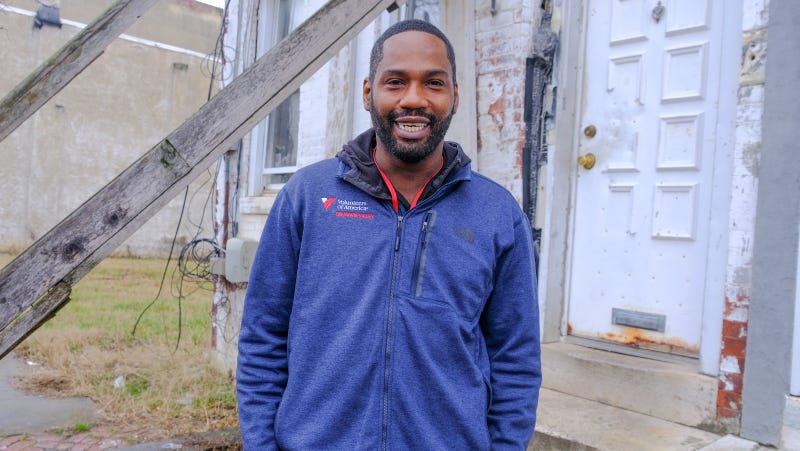
Local activists say the state of New Jersey could change the narrative about King' beginnings as a civil rights leader, but state officials don’t think there’s enough proof yet.
And 753 Walnut Street is but one example.
Connecting Maple Shade and Camden
For nearly eight years, Patrick Duff has been trying to change that dynamic.
The Delran native describes himself as a “renaissance man,” as well as an independent investigative journalist and civil rights activist.
He learned about the history of 753 Walnut Street while doing research on King.
“I said, ‘That is absolutely absurd. But he lived in Camden. King — in Camden. This is something I've never heard of.’”
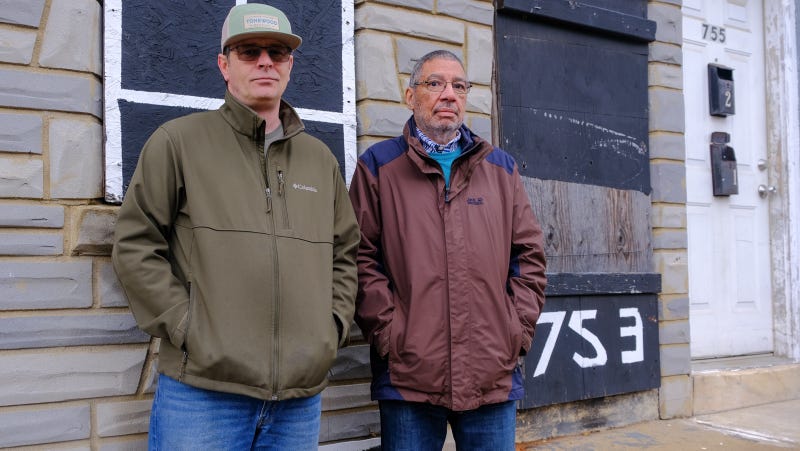
In 2005, when Duff moved from South Jersey to California to get into the cannabis business, he ran into a lot of resistance from law enforcement. So, he started studying King to learn more about the civil rights leader’s methods of non-violent protest.
After moving back to South Jersey, he came across newspaper clippings and legal documentation of an incident that occurred in Maple Shade, New Jersey, on June 12, 1950. He says it's evidence that the little township holds some big history in King's civil rights journey.
Four young Black people went to a bar called Mary’s Cafe, which had a reputation for not serving Black people, and they were denied service.
After conducting a sit-in, the group left the bar and reported the incident to the police. One of the signatures on the police report is King's; and the address accompanying the name: 753 Walnut Street in Camden.
Another signature belonged to Walter McCall, one of King’s closest friends, whose uncle owned the house.
King visited the Walnut Street house frequently while he was studying at Crozer Theological Seminary in Upland, Delaware County.
Duff kept digging to the point that he felt he had found enough evidence to reach the following conclusion:
“Walter [McCall] very clearly states that the first civil rights battle that he had ever been in with Dr. King was in Maple Shade, New Jersey," Duff said.
So, in March 2015, Duff submitted a preliminary application to the New Jersey Historic Preservation Office in hopes of getting 753 Walnut Street listed on the state and national historic registry.
Since then, Duff said, the state has done nothing but fight with him about the application.
What’s in a listing?
The New Jersey Register Review will “take no more than 45 days,” according to a PDF document available at the New Jersey Historic Preservation Office’s official website.
“It took four years, 10 months and 15 days to get the response,” said Duff, referring to the rejection notice the preservation office sent him in the form of a nine-page letter dated Jan. 31, 2020.
In explaining its decision, the preservation office determined there was insufficient evidence that a “significant” event happened at the address, and that Duff’s application and research failed to demonstrate the “strength and duration” of King’s visits to the house.
Duff calls these rulings “hogwash.” He is adamant that a significant event did happen there, as the house was where King made the deliberate decision to go to Mary’s Cafe and conduct a non-violent protest if he were refused service.
“And the battle itself actually took place in Maple Shade, but the pre-planning of the battle, and the conversations about going down to Maple Shade actually took place right here at this house," Duff said. "Martin Luther King says on those very steps that, ‘Maybe we need to go down there, so we can start to go anywhere that we want.’”
Through his own research, Duff found newspaper articles and conducted interviews that seemed to corroborate this version of the story.
The preservation office told Duff to take another shot at sending in a preliminary application for 753 Walnut Street in October 2020. He did just that and, once again, he waited 45 days. And continued to wait even longer after that.
In October 2021 and March 2022 Duff received updates from the preservation office that a staffing shortage was contributing to the delay in a decision on the second preliminary application.
To Duff’s knowledge, the case still remains open.
In a statement to KYW Newsradio, Kate Marcopul, administrator at the preservation office said, “The DEP is enthused and committed to memorializing the Civil Rights History of Camden and the surrounding area.”
“To that end, the department has worked with and shared grant opportunities and strategies for preservation with the property owner. In fact, the property owner was a recent recipient of a NJ Historic Grant award this past September.”
The current owner of 753 Walnut Street, Amir Khan, was unavailable to comment on the nature of the grant or how he plans to use it.
The grant, however, does not resolve the issue of placing the house on the New Jersey Register of Historic Places, which is accompanied by a set of safeguards that would block any public action to the property that might “encroach upon, damage or destroy” the home.
As for the site where Mary’s Cafe once stood, it’s ineligible to be listed on the historic register because the structure of the bar itself no longer exists. It was demolished during a construction project more than a decade ago.
Duff, along with the help of Temple University journalism professor Linn Washington Jr., got the ball rolling to have an unofficial marker placed on the site in 2018 by Maple Shade Township.
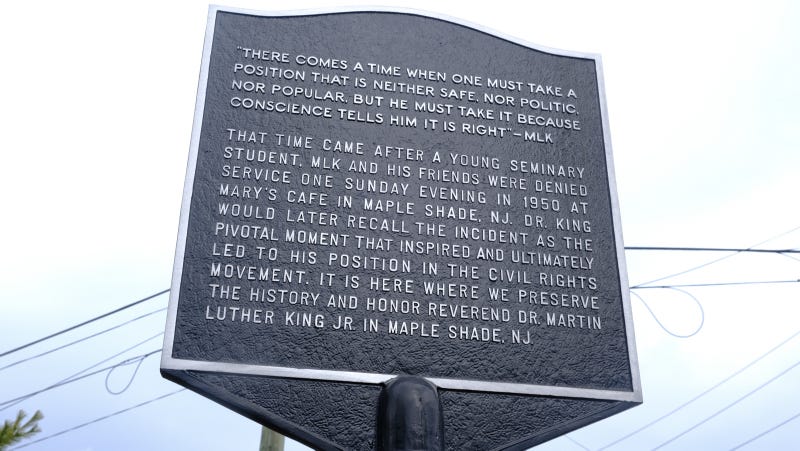
“We are really standing now on hallowed ground,” Washington wrote in 1986 in a Philadelphia Daily News feature on the Mary’s Cafe incident when he was a reporter there.
“What happened here in Maple Shade, it transforms America. I mean, what person from American history has a park name for them in Israel, has recognition in India? Who in America has a stahitue over the West door, the main door of Westminster Abbey in London? Martin Luther King. And he can't get official recognition in New Jersey? Sometng is terribly wrong with that.”
Philadelphia landmark set to be recognized
In Philadelphia, the historic First Unitarian Church at 22nd and Chestnut streets received exciting news.
The church, which was already listed on the Pennsylvania and National Registers of Historic Places, expects to have the language of its designation amended to acknowledge a pivotal connection to King.
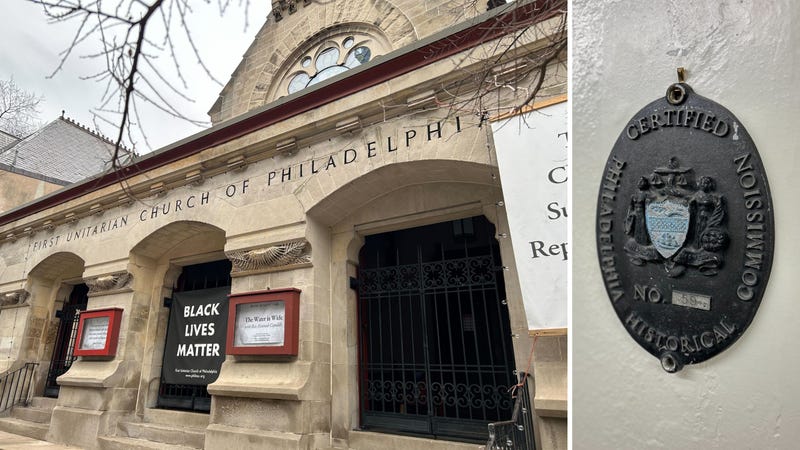
“We've learned in the last few years that our building was the site of an important moment in civil rights history,” said Reverend Hanna Capaldi, First Unitarian’s minister for faith formation.
“It was here that Martin Luther King Jr. heard Mordecai Johnson, who was the president of Howard University, give a sermon, a talk, in our sanctuary about what he had learned in India from Gandhi about non-violent direct action.
“And it's said that Martin Luther King, upon hearing that sermon, that speech, here in our sanctuary, was inspired to begin exploring the potential and the possibility of non-violent direct action for the civil rights movement here in the United States.”
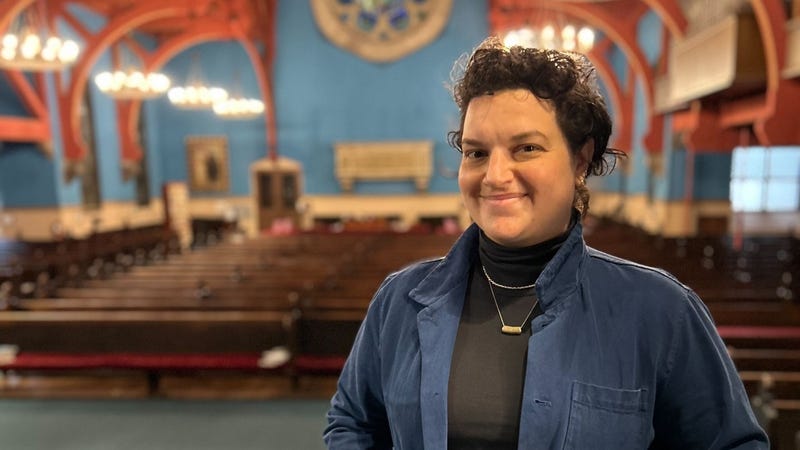
Johnson gave the sermon in November 1950, just months after King protested his treatment at Mary’s Cafe in Maple Shade.
Want to take a guess who submitted the application to Pennsylvania’s Historic Preservation Office to amend the First Unitarian marker?
Of course, it was Duff.
He hopes, one day, the house at 753 Walnut Street in Camden will get what, in his eyes, would be a similar just due.
“I think there's enough people now that recognize the significance [of the house], and that the egg on [the HPO’s] faces is just growing and growing.”



